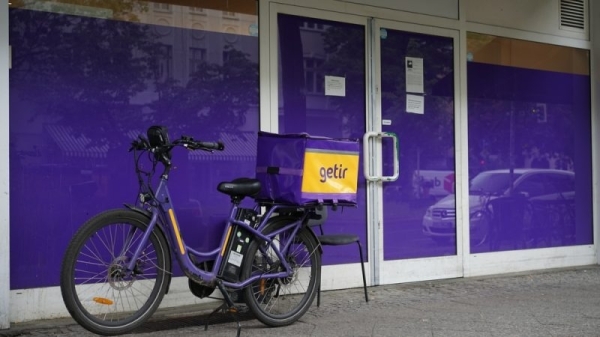Sweden gives platform work directive final push in hope of EU Council deal

A meeting of EU ambassadors on Wednesday (31 May) will look into a new compromise text on the platform work directive, seen by EURACTIV, in the hope of building a bridge between two starkly divided camps and bringing member states together ahead of a ministerial meeting in mid-June.
This is Sweden’s fourth try at finding a compromise text after months of a political deadlock at both working party and ambassadors levels. Back in December, a proposal from the then-Czech EU Council presidency had fallen through at the ministerial level.
Disagreements abound over the applicability of the legal presumption of employment and the derogations that the final directive would allow for.
A meeting of the Committee of Permanent Representatives (COREPER) last week exemplified a clear split of views: “Fourteen delegations still declared that they would not yet be able to support the Presidency compromise text as it would still need some fine-tuning,” reads the new compromise text, dated 27 May.

Sweden’s third attempt to reconcile EU Council on platform workers rules
The Swedish presidency of the EU Council is making its third – and probably last – attempt to square the circle on the rules for gig economy workers with some light-touch changes.
A clear split
EURACTIV understands that countries looking for a more protective text, such as Spain, Belgium, Luxembourg, and the Netherlands, could not agree to derogation clauses which, in their view, would annul any meaningful impact of the legal presumption.
On the other hand, the more liberal countries such as France and Poland also rejected the text presented last week, asking that a broad derogation clause, put into the recitals after pushbacks from the more ‘protective’ camp back in December, be brought back into the operative part of the text.
The clause argues that platforms’ compliance with legal obligations or collective agreements cannot be considered to meet criteria under the legal presumption.
Finally, a group of Eastern European and Baltic countries, like Hungary, Latvia, and Lithuania, favoured a higher threshold to trigger the presumption.
Three criteria out of seven are required to trigger the presumption under the current negotiated text. The Commission’s original text instead required two criteria out of five.
As for Germany, it continues to remain silent and has not yet taken a stance on the file – due to divisions within its domestic coalition.
Spain, a staunch supporter of a protective and broad-scoped legal presumption, will also be scrutinised on Wednesday, as the country heads to polls on 23 July, with the possibility that the left-wing coalition makes way to a centre-right one, with a more liberal stance.
This split between more protection and greater liberalism is “a sign that [the Presidency’s] compromise proposal has been already well balanced”, the document indicates.

EU Parliament adopts position on platform workers directive
After months of arduous negotiations, the much-debated and politically sensitive platform workers’ file was finally approved in plenary on Thursday (2 February), with 376 in favour and 212 against.
Reinforcing the role of existing legal mechanisms and national courts
The new compromise text adds new wording under the legal presumption article to “clarify that the legal presumption shall not lead in any case to a reduction of the level of protection provided to platform workers by the legal systems in place in member states”.
This allows countries with more favourable legal mechanisms than what the Directive provides to continue relying on such mechanisms.
Further, the Presidency added new text to clarify that the legal presumption does not affect “the discretion of the courts and national authorities to ascertain the existence of an employment relationship” as defined by law and collective agreements.
Terms and Conditions
At the same time, Sweden also added further clarifications on the nature of the platforms’ Terms and Conditions.
The legal presumption provisions currently establish that exerting control and direction is determined “either by virtue of its applicable terms and conditions or in practice”.
The last iteration of the Directive now makes it clear that “only those provisions of the terms and conditions which are unilaterally determined by the Digital Labour Platform are relevant” in considering whether a criterion is met.
In such instances, workers would have no possible way to influence the substance of these Terms and Conditions. A new recital adds that the name and form of these T&Cs, and whether a negotiation between social partners took place, is not in itself decisive.

Bogus or genuine? The EU’s plan for platform workers
In this video, we take a closer look at the European Commission’s draft directive on platform work, which aims to ensure platform workers have the contractual relationship that best encapsulates the work they actually do for platforms.
The directive also looks …
Read more with EURACTIV




